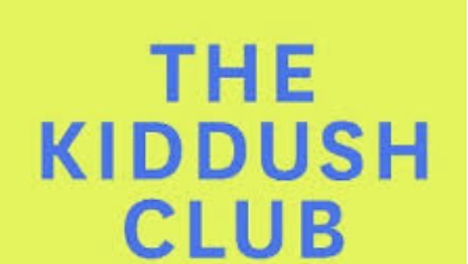Operation Inspiration
This is an example of not judging a book by its cover, or at least, not judging a column by its title. If you were to imagine what I was going to say here, you might think I was planning to join the fellas who have Kiddush, e.g. booze, herring, crackers, etc., at various times of the morning on Shabbos. So far, I’ve only partaken of Kiddush after davening is over, when the shul has a general Kiddush, but even that isn’t a given.
Kiddush in its colloquial sense is a wonderful concept, combining physical enjoyment with the heightened spiritual atmosphere of Shabbos, when there is a special mitzvah to enjoy food and drink. By elevating mundane food into part of a spiritual pursuit, and including sweet camaraderie, we sanctify ourselves and the Shabbos. However, sometimes it can be problematic.
I won’t go into the issues with people missing parts of davening to enjoy a social event in the name of righteousness. I’ll leave that for the Rabbanim. They and responsible adults can deal with the mixed messages that presents, as well as the other issues of young people seeing the glorification of alcohol, which is NOT a Jewish concept, and certainly we must ensure we are teaching our children the right things and never, Chas V’Shalom, the wrong things.
What I’m thinking about is more about the food than the drink, and the situation I had goes all the way back to my days in Yeshiva. Back then, when someone made a Bar Mitzvah or similar affair, it was held in the dining room, the same place the boys would eat lunch.
I recall with (embarrassed) hedonistic delight, how awesome it was to be able to combine the simcha Kiddush with the Shabbos meal. We had all sorts of extra cakes and goodies, and the meal went faster than usual. That meant you got to eat your fill and get to your bed to nap super quickly. Of course, there were times when that wasn’t the plan.
I was fortunate enough to have grandparents who lived near the Yeshiva. I often ate Shabbos meals there, and on Kiddush days I noticed an unusual phenomenon. When I got to their home, I wasn’t able to eat as much as usual, given the Kiddush food I’d enjoyed. Yet, my grandfather never seemed to be bothered by the same issue. I finally asked him about it. “Zaidy, how do you manage to go to the Kiddush and still have an appetite when you get home?”
“Sure, I go to the Kiddush,” he said. “But I don’t eat anything there.” WHAT?!?! How could you go to a Kiddush with all those amazing cakes and cookies and simply sit there and not eat? I couldn’t understand how it was humanly possible. He would come in, sit at the head table with the other rabbis and teachers, and just listen to the speeches, say Mazel Tov, and leave. It was inconceivable to me. What amazing will power that must have taken.
In truth, though, it wasn’t so much willpower as it was an appreciation of what was to come. My Bubby’s food certainly was better than the snacks and treats, even if not as exciting. With his maturity, he understood the value of waiting and not giving in to the momentary draw of the Kiddush, especially when the trade-off was not eating what his wife had lovingly prepared.
I recall, too, how the staff at camp would tell the boys not to take any cake from the serving platter until after Kiddush was made. Quite often the boys wouldn’t listen and would take the cake so as to be ready to eat immediately after Kiddush. The rule had been made to teach them self-control; that we don’t need to satisfy our desires immediately, and that by waiting we don’t lose out. I remember seeing a bunk punished in that just before Kiddush, the head counselor came and told them they had to put it back and they now had to wait until he allowed them to eat. He then stood there for several minutes. As everyone else was enjoying the gooey kokosh cake, they sat and looked around, wondering if it would ever be there turn. He told them about not being gluttonous and respecting the process. Then (finally) he allowed them to partake. I am not sure they understood the lesson, but I didn’t see them do it again that summer.
Which brings me to the title. Over the years, I’ve managed to rein in my need for instant gratification and hold out. I often don’t eat at Kiddush because I know the food at home is better and more important. I may stay to participate (I often say a few words at our shul’s Kiddush) but I rarely join in the fun of heaping bowls of cholent and kugel.
I feel like I’ve matured, and joined the club – of my grandfather and others who understand the real meaning of Kiddush, which is sanctity and separation. Knowing what’s right for us and not right for us is a level of wisdom we could all stand to gain.
Did not Adam HaRishon partake a bit too early from the Aitz HaDaas? Had he waited until Shabbos, it would have been available for his enjoyment. Because he didn’t, he changed history and brought death to the world.
Whether you opt to eat cholent and sip whiskey or you prefer not to eat before you get home, you, too, can join the Kiddush club by making wise choices and knowing that sometimes the best things in life are worth waiting for, even if you could get something quick and easy, right now.
© 2022 – All Rights Reserved
Did you enjoy this column? Feedback is welcome and appreciated. E-mail info@JewishSpeechWriter.com to share your thoughts. You never know when you may be the lamp that enlightens someone else.






